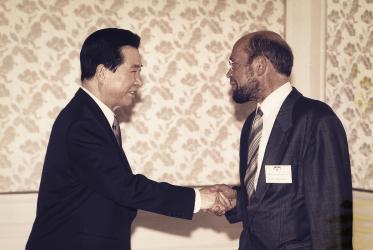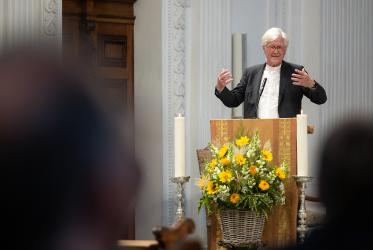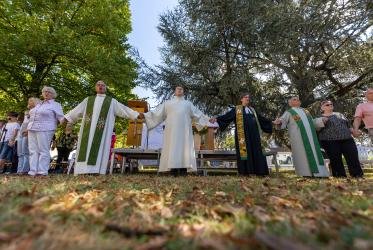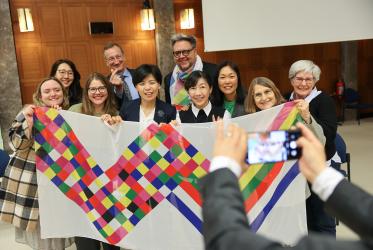Displaying 1 - 20 of 115
WCC moderator calls for a “reformation of hope” based on love
10 October 2023
Ecumenism in the Philippines means hope and resilience
22 August 2023
Velada de bienvenida y peregrinación histórica a lo largo del Rin
28 September 2022
La respuesta a las necesidades humanitarias en Ucrania
27 September 2022
















